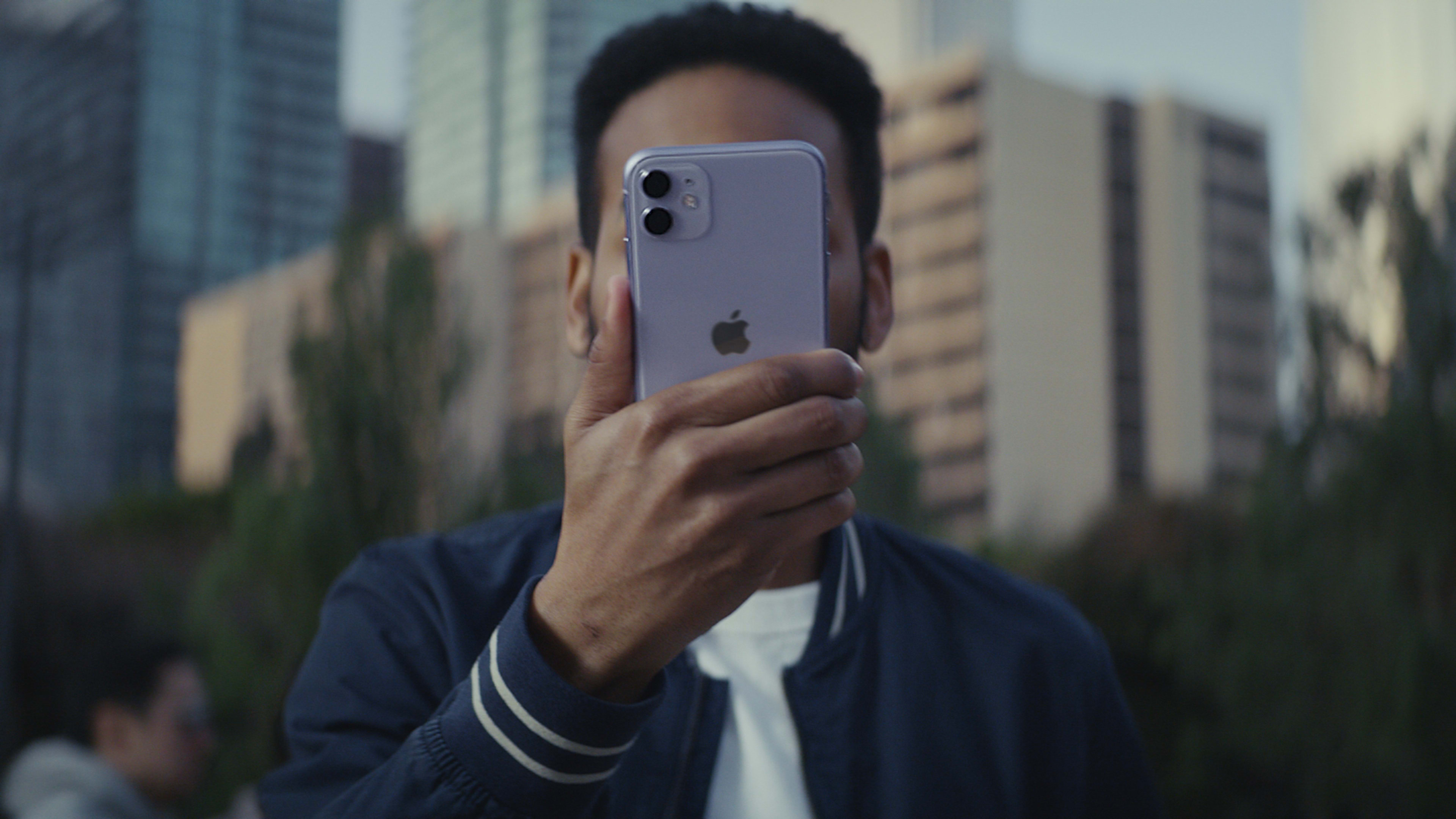Apple has always had a heavy focus on user privacy when it comes to its hardware and software. That focus is no more evident than in this year’s upcoming iOS 14, which packs more privacy features into the iPhone’s operating system than there’s ever been. And as privacy is increasingly becoming more of a front-line issue with your average “non-techie” user, it’s no wonder Apple has boosted its marketing efforts in recent years to show off just how much effort the company puts into protecting its users’ privacy.
Case in point: Apple has a new television ad airing beginning today called “Over Sharing” that is a humorous take on just what information we wouldn’t want other people to know about ourselves. The spot follows people blabbing their personal information out loud to strangers—the point being: You wouldn’t reveal this information to just anyone, so why would you allow your phone to do it?
While each scenario played out in the ad is funny in its own right, each actually refers to specific security and privacy features with which Apple’s iPhone protects its users—without Apple actually naming or identifying that feature in the spot. In other words, each scenario is its own little Easter egg for one of Apple’s privacy technologies that actively protects users without users having to do a thing. Here’s what they all are:
- Man on a bus announcing he’s browsed sites for divorce attorneys: This scenario is highlighting Safari’s intelligent tracking prevention, which stops advertisers and websites from tracking you around the web and building up a profile of your specific activities online.
- Woman in movie theater telling people her login name for everything: A funny scenario that’s meant to highlight the “Sign in with Apple” login system introduced last year. The system allows you to sign up at websites and in apps using randomized logins—and it can also keep your email address private from sites and apps you join.
- Coworkers shouting across the office about who they love and hate working with: A funny take on highlighting the importance of iMessage’s end-to-end encryption in a work environment. Apple can’t read your iMessages—and neither can your boss or anyone else.
- Man in bathroom stall announcing he’s reading an article about sweaty hands: This is another funny nod to Safari’s intelligent tracking prevention features. The setting is spot on, too. After all, don’t we all pass time in the bathroom by browsing on our phone?
- Woman telling people on the street her home is in 1,000 feet: This highlights the massive privacy protections in Apple Maps. The company’s Maps app doesn’t associate your location data with your Apple ID, nor does Apple keep a history of where you’ve been. Apple Maps provides a wealth of privacy features other mapping providers would never dream of allowing their users.
- Man in park announcing his heart rate to strangers: This is a nod to Apple’s Health app. Apple’s Health app allows users to choose with whom they share their health data on a granular basis. For example, you can give some apps access to your heart rate, while blocking other apps from knowing it. All your health data is always encrypted and stored on your device locally. If you choose to sync your Health data between devices, it’s done end-to-end encrypted, and not even Apple can read it.
- Woman in restaurant announcing she bought four pregnancy tests: This is the first of two scenarios highlighting the privacy protections Apple Pay offers. This one references the fact that Apple doesn’t keep any of your Apple Pay transaction data that could be tied back to you as an individual. Further, Apple doesn’t know what you bought, where you bought it, or how much you paid for it when you pay using Apple Pay.
- Woman in the park giving out her credit card number: A second Apple Pay scenario. In this case, it highlights that your credit and debit card numbers are hidden even from Apple, keeping them completely safe.
The spot ends with the tag “Some things shouldn’t be shared. iPhone helps keep it that way.”
All in all, the ad isn’t one of Apple’s flashier ones that’s going to win big awards. Yet, its beauty is in its simplicity and humor, which go a long way in highlighting a very important issue—user privacy—which many consumers can find quite boring or uninteresting if you just blab on about the underlying technologies protecting their privacy.
The “Over Sharing” spot will air on television and on the web beginning today in multiple markets around the world. You can view the spot below.
Recognize your brand’s excellence by applying to this year’s Brands That Matter Awards before the early-rate deadline, May 3.
